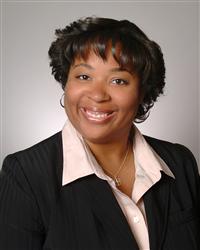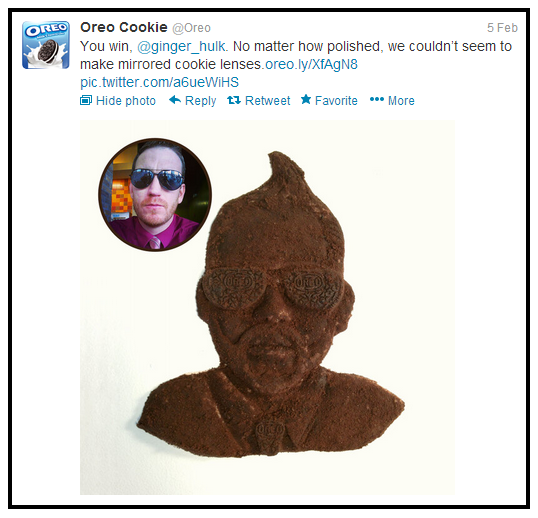Public relations professionals, marketers and communicators cannot go it alone. PR is the hottest category in the fast-changing communications world. The U.S. Department of Labor expects it to be the fastest-growing profession in America in the next 10 years.
Collaboration, partnership and teamwork serve as a force multiplier that can lead real change in our industry, and new professionals are helping to lead this change. New professionals are also driving a shift in how PR as a profession thinks about diversity.
By getting involved with PRSA Chapters, new professionals can facilitate this change. We encourage new professionals to identify opportunities to serve on their Chapters’ executive boards or serve on various committees within their local area. Being in a leadership role within the Chapter truly provides new professionals a wonderful opportunity to develop professionally and leverage skills and expertise outside of the workplace.
As active members of the PRSA New York Chapter serving on both the Executive Board and Marketing Committee, we became actively involved in assisting PRSA-NY to implement programs that support PRSA’s commitment to diversity as well as attract diverse professionals to the Chapter.
On Tuesday, April 2, PRSA-NY New Professionals Committee hosted the 2013 PR Career Forum with the NYU PRSSA Chapter with a grant from the PRSA Foundation and support from the Council of Public Relations Firms. The mission of the PR Career Forum was to attract top talent to the PR profession and help introduce, develop and prepare students and young professionals for a career in PR.
PRSA NY has hosted this event for the past several years; however, for the 2013 Career Forum, the Chapter placed a special emphasis on attracting diverse talent in support of its 2013 Diversity Initiative. As a result of this new emphasis, this unified mission resulted in attracting 150 diverse students from different ethnicities, genders, ages, backgrounds and university settings to the Career Forum to hear about and plan their next steps toward a career in PR.
The PRSA-NY New Professionals Committee also leveraged partnerships with local PRSSA Chapters for the Forum, including strengthening the relationship with the host Chapter at NYU. Additionally, some of the top PR agencies in New York that exhibited at the Forum commented on how impressed they were with the quality of students who attended the event.
As a new professional, establishing and leveraging strategic partnerships is an invaluable skill to develop. By doing this at a local Chapter level, PRSA New Professionals can own these skills to make a valuable contribution at work and influence change within the PR industry as a whole.
 Brandi Boatner is the Digital Experience Manager for IBM’s Global Technology Services in New York City. In this newly created role, her responsibilities include working to develop and drive the implementation of a C-level facing digital experience and engagement model to enhance the way IBM engages with CXOs in the digital world (including Websites, blogs, social media sites and mobile devices). Boatner is also the former national president of PRSSA from 2008-2009 while attending graduate school at Hawaii Pacific University in Honolulu, Hawaii. She holds several leadership positions within in PRSA on both the local and national level serving as a member of the Board of Directors for the PRSA Foundation and PRSA New York Chapter as Secretary; the Co-Mentoring Chair for the PRSA New Professionals section; the Chair for the PRSA Diversity Committee; a member of the PRSA Membership Committee; and the New Professionals Chair for the PRSA-NY Chapter in Manhattan. Outside of PRSA, Boatner is an advisory council member for the LAGRANT Foundation, an organization that supports minority students in marketing, advertising and public relations.
Brandi Boatner is the Digital Experience Manager for IBM’s Global Technology Services in New York City. In this newly created role, her responsibilities include working to develop and drive the implementation of a C-level facing digital experience and engagement model to enhance the way IBM engages with CXOs in the digital world (including Websites, blogs, social media sites and mobile devices). Boatner is also the former national president of PRSSA from 2008-2009 while attending graduate school at Hawaii Pacific University in Honolulu, Hawaii. She holds several leadership positions within in PRSA on both the local and national level serving as a member of the Board of Directors for the PRSA Foundation and PRSA New York Chapter as Secretary; the Co-Mentoring Chair for the PRSA New Professionals section; the Chair for the PRSA Diversity Committee; a member of the PRSA Membership Committee; and the New Professionals Chair for the PRSA-NY Chapter in Manhattan. Outside of PRSA, Boatner is an advisory council member for the LAGRANT Foundation, an organization that supports minority students in marketing, advertising and public relations.
 Jessica Noonan currently works within Burson-Marsteller’s Corporate practice in the New York office, providing strategic communication support to numerous key clients. Her active aspiration to become a PR professional led to her role as the 2012 national vice president of professional development for the Public Relations Student Society of America. She is now a member of the Public Relations Society of America where she is Membership Co-Chair on the New Professionals committee and serves on the PRSA-NY Marketing committee. Jessica serves as the President of the board for the newly developed non-profit the LittleBigFund. Jessica holds a Bachelor of Arts in Public Communication and a Bachelor of Science in Business Administration, specializing in marketing from American University.
Jessica Noonan currently works within Burson-Marsteller’s Corporate practice in the New York office, providing strategic communication support to numerous key clients. Her active aspiration to become a PR professional led to her role as the 2012 national vice president of professional development for the Public Relations Student Society of America. She is now a member of the Public Relations Society of America where she is Membership Co-Chair on the New Professionals committee and serves on the PRSA-NY Marketing committee. Jessica serves as the President of the board for the newly developed non-profit the LittleBigFund. Jessica holds a Bachelor of Arts in Public Communication and a Bachelor of Science in Business Administration, specializing in marketing from American University.












